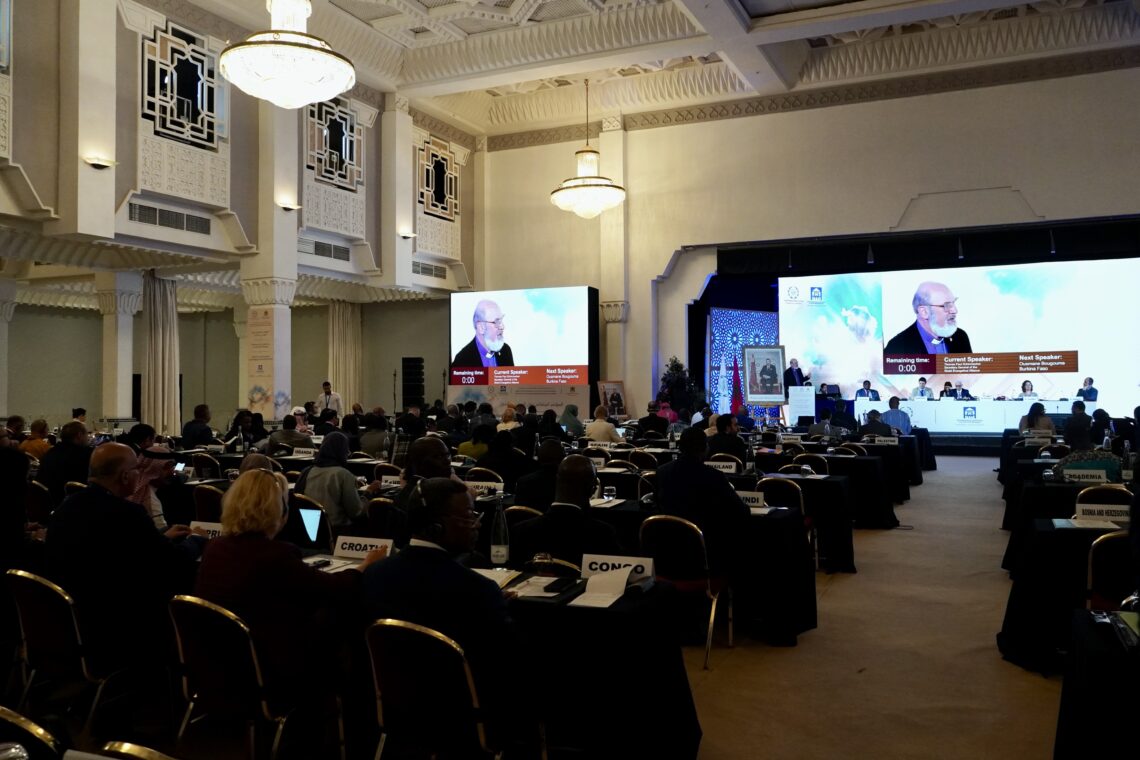Religious freedom and human rights are hallmarks of German foreign and development policy
(Bonn, 02.04.2025) With regard to the ongoing coalition negotiations for a new government between the CDU/CSU (Christian Democrats) and the SPD (Social Democrats), the President of the International Institute for Religious Freedom (IIRF), Prof. Thomas Schirrmacher, sees the office of the Commissioner for Religious Freedom as an essential element of German foreign policy, even in a future CDU/CSU and SPD coalition. Current developments in Nigeria, India, Syria, Israel and Palestine, as well as the global threat to religious minorities, show that Germany’s commitment to religious freedom is of the utmost importance.
Freedom of belief is part of the DNA of the Grundgesetz (“Basic Law”), the constitution of the Federal Republic of Germany. Article 4 states: “Freedom of faith and of conscience and freedom to profess any religious creed or worldview shall be inviolable.”
Standing up for religious freedom is not clientelism
In times of serious international crises and challenges, the successful work of the Commissioner for Religious Freedom of the German government must not be stifled. That would send a disastrous signal. Rather, global advocacy for religious freedom and human rights must stand out right now as a “hallmark of German foreign and development policy”. “A foreign policy heavyweight like Germany, which stands up for freedom of religion and belief and keeps this human right out of party-political disputes, is indispensable worldwide. Germany has proven that standing up for religious freedom is not a clientelist policy, but a human right that stands above the political parties and without which a democracy cannot exist,” said Schirrmacher, who is also President of the International Society for Human Rights (ISHR).
Statement by Prof Dr mult. Thomas Schirrmacher, President of the IIRF
A coalition government of CDU/CSU (Christian Democrats) and the SPD (Social Democrats) created the office of Federal Government Commissioner for Freedom of Religion or Belief. The office was first held by a CDU MP for one term of the parliament, and then by an SPD MP for the next term. Both played a decisive role in shaping the office and made it recognised worldwide far beyond the letter of the job description.
There are many states that trample on freedom of religion or belief. There are many states for which the issue is meaningless. Unfortunately, there is a growing number of states that are instrumentalising the issue for party political or religious political purposes, not least the USA at present. Accordingly, a corresponding office there is usually a plaything of the respective governing parties and comes and goes with changes of government or is redefined in each case.
A foreign policy heavyweight like Germany, which stands up for freedom of religion and belief and keeps this human right out of party-political disputes, is indispensable worldwide. Germany has proven that standing up for religious freedom is not a clientelist policy, but a human right that stands above the political parties and without which a democracy cannot exist.
In addition, the office of the Commissioner plays a central role in interreligious dialogue and has a major influence for good on countries that define themselves very strongly in religious terms. Since more than 80 per cent of the world’s population belong to a religious faith, and most non-religious people are strongly motivated by a world view, it is particularly important for foreign policy that their motivations have a visible place in state and politics. The office of the commissioner can do this very effectively without promoting or favouring a particular religion or ideology, which would be contrary to our self-image as laid down in the constitution. Germany’s foreign policy is dependent on such knowledge when dealing with highly religious countries such as Nigeria, India, Syria or even Israel and Palestine—to name just a few current situations.
The Federal Government Commissioner for Freedom of Religion or Belief differs greatly from most other commissioners in that its holder does not act independently, but is closely linked to the ministry in which it is based, but also works closely with the Foreign Ministry. His report is considered so important worldwide because the German embassies are involved in every country he reports on. In addition, under both incumbents, the office has been closely involved with the German Bundestag, particularly with the Committee on Human Rights and Humanitarian Aid. The Committee’s last hearing focussed on the Commissioner’s latest report. The experts appointed by the CDU/CSU and the SPD, including myself, were very satisfied with the Commissioner’s report. They were of the opinion that the report plays an important role in keeping dictatorial and non-democratic states in check. Dictators and autocrats fear these reports as they expose their actions in a neutral and research-based way. In turn, such reports are read carefully when supranational institutions or investors take a country’s civil liberties situation into consideration.
Freedom of belief is part of the DNA of the Grundgesetz (“Basic Law”), the constitiuon of the Federal Republic of Germany. Article 4 states: “Freedom of faith and of conscience and freedom to profess any religious creed or worldview shall be inviolable.”
Downloads and Links
- Photo 1: Thomas Schirrmacher addresses the Assembly of the Inter-Parliamentary Union (IPU) in Marrakesh, Morocco, on religious freedom © IIRF/Martin Warnecke
- BQ 786 – 9/2024 ‘Religious dialogue is essential: Schirrmacher speaks in the Bundestag at the hearing on the situation of freedom of religion or belief’: https://bonn-profiles.net/?p=6756


